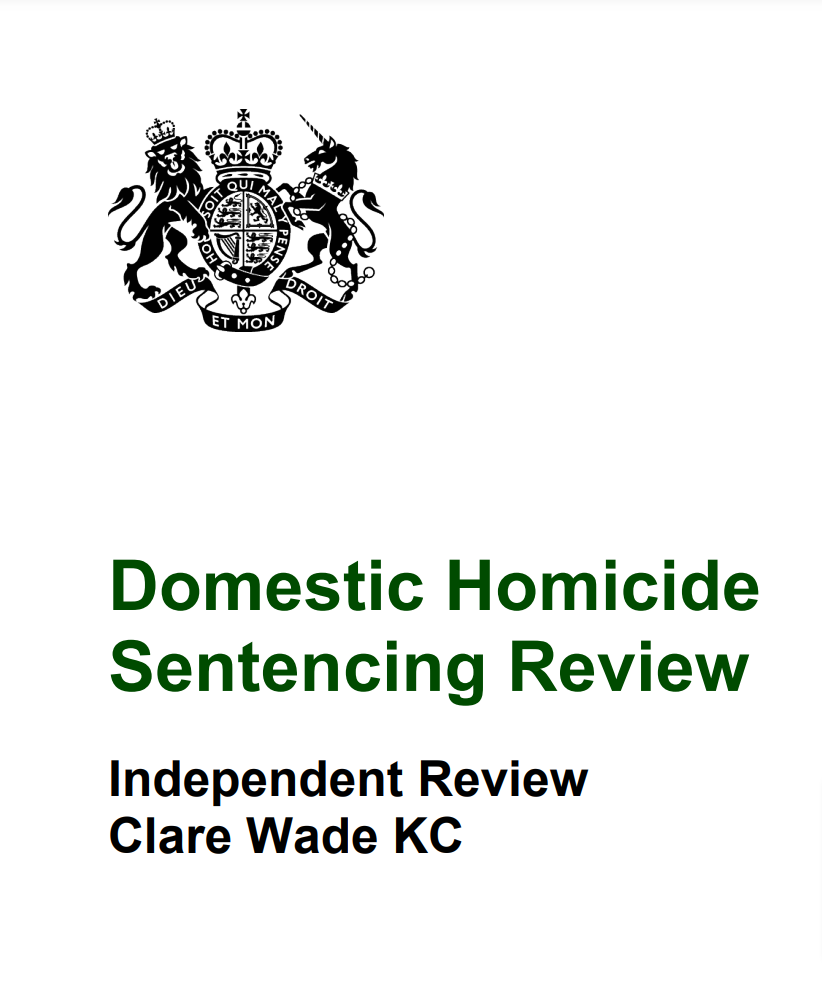
Domestic abusers who kill their partners or ex-partners will receive tougher sentences under government plans published this week.
The law will be changed so a history of coercive or controlling behaviour against the victim or the use of excessive or gratuitous violence are made aggravating factors in sentencing decisions for murder.
It means some defendants will face more time behind bars, as judges must consider longer jail terms for their abuse and aggression.
The changes follow recommendations made by Clare Wade KC in an independent review into domestic homicide sentencing, which the government will respond to in full in the summer.
Domestic Homicide is defined as a death that has occurred as a result of violence, abuse or neglect by a partner, ex-partner, relative or member of the same household.
Around one in four (26%) homicides in England and Wales are committed by a current or former partner or relative. Of the murder cases reviewed by Clare Wade over half (51%) involved controlling or coercive behaviour while excessive violence, or overkill, was identified in 60%, with men being the perpetrator in all but one case.
Overkill is defined in the Wade Review and wider literature as the use of excessive or gratuitous violence, beyond that necessary to kill. It amounts to violation of the body and causes intense distress to the families of victims.
The Wade Review recommends that overkill should be added to the statutory aggravating factors to murder. This would mean that a judge must consider increasing an offender’s minimum custodial term where overkill has occurred. The government will introduce legislation to make this change as soon as possible.
Her review found the current sentencing framework does not adequately reflect that many domestic homicides are preceded by years of abuse.
The government has also asked the Sentencing Council to review the manslaughter sentencing guidelines to explain to judges that cases where deaths occur during rough sex should be punished with longer jail terms.
While the law is clear that there is no such thing as a “rough sex defence”, the review found that the high risk of death these acts may carry should be reflected in sentences potentially several years longer.
The production or revision of sentencing guidelines is a matter for the independent Sentencing Council. However, the Sentencing Council has a statutory duty under section 124 of the Coroners and Justice Act 2009 to consider any proposals made by the Lord Chancellor to produce or revise guidelines.
A public consultation will also be launched to determine whether a higher sentencing starting point of 25 years should be applied in murder cases where there has been a history of controlling and coercive abuse.
Currently, the 25-year starting point only applies to murders where a knife has been taken to the scene with intent.
How can we help?
Here at Broadbents Solicitors, we ensure we keep up to date with any changes in legislation and case law so that we are always best placed to advise you properly. If you would like to discuss any aspect of your case, or are in need of a criminal solicitor, please give us a call on: Alfreton: 01773 832 511, Derby: 01332 369 090 and Heanor: 01773 769 891. Alternatively, you can fill out our online enquiry form where a member of our team will be in contact shortly.
Image credit: © Crown Copyright






